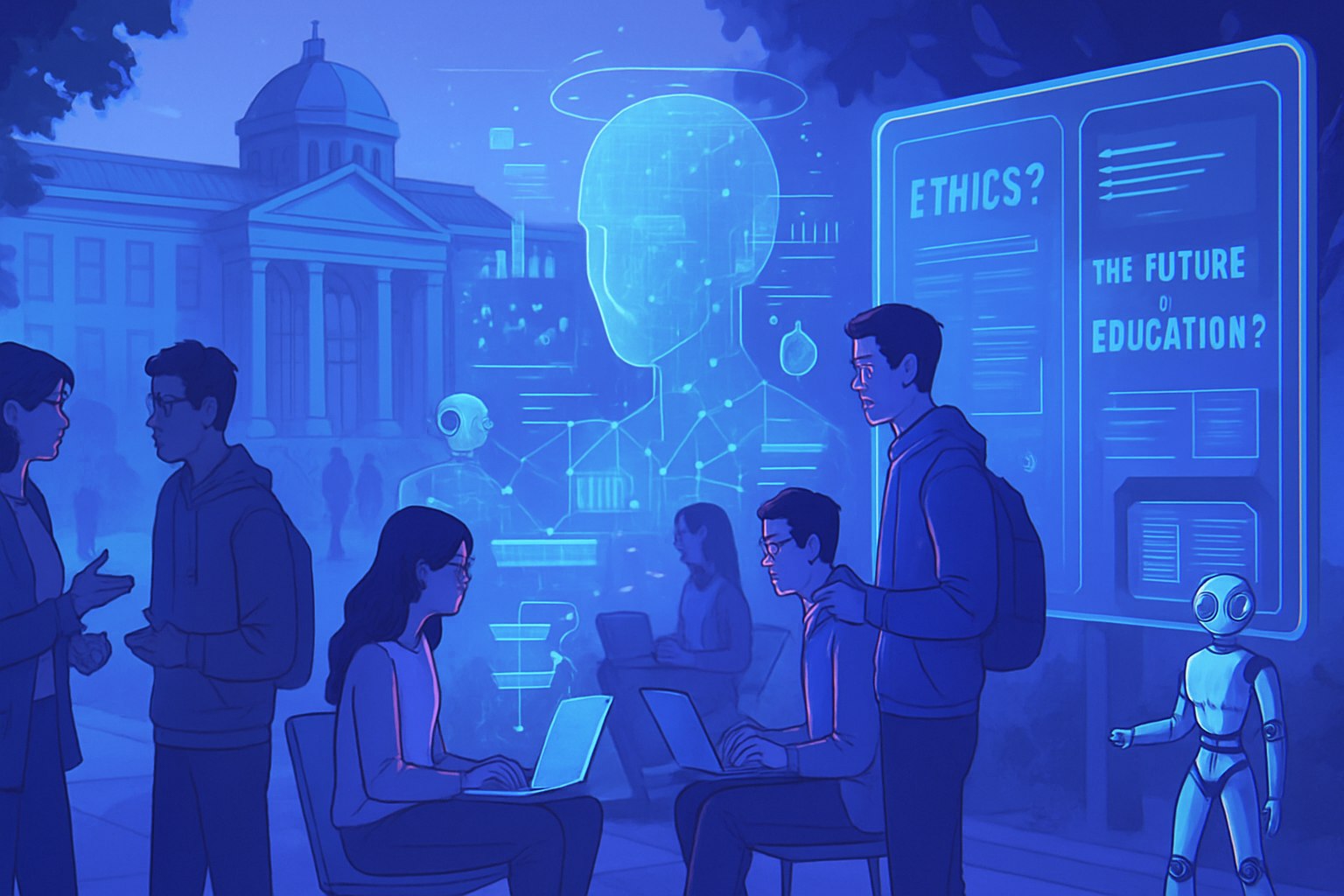Universities are facing a major dilemma with the rise of AI. Academic integrity is at stake as new forms of cheating emerge. The use of AI in education brings unprecedented challenges, complicating traditional assessment methods. Institutions must navigate a complex landscape with no easy solutions at their disposal. The temptation to impose traditional and secure exams only masks the real issues, while innovation becomes a double-edged sword. In light of the rapid advancement of technologies, a deep reflection is necessary to ensure a balance between innovation and academic excellence.
Academic issues related to the use of AI
Higher education institutions are faced with a major challenge due to the proliferation of artificial intelligence tools. The fear of academic cheating sparked by the emergence of generative AIs raises numerous concerns. Universities, supported by revenue from international students, hesitate to take radical measures. More than 40% of them are in a deficit situation, which could worsen financial losses at the expense of an effective response to fraud.
Limitations of detection tools
The difficulty in detecting the use of AI in academic work is concerning. Some studies, such as those by Perkins et al. (2024), indicate that AI detectors can only correctly identify 40% of cases. In “adverse” scenarios, where AI use is carefully concealed, this accuracy drops to just 22%. Institutions cannot therefore rely on these tools to guarantee an objective assessment of academic outputs.
Voices are rising to call for the use of AI detectors. However, these suggestions overlook research findings. The available tools often incorrectly classify human production as AI-generated, making their adoption detrimental to the academic community.
Alternatives to traditional exams
In light of the inability to effectively detect cheating, some universities are considering in-person exams or enhanced assessments. These practices aim to reduce the impact of AI tools on exam results. However, a complete return to traditional formats may not represent a desirable solution for all.
New evaluation paradigms, incorporating analytical tasks and unexpected situations, might prove more effective. These approaches encourage students to process novel information and argue in depth, rather than focus on passive essays, often filled with plagiarism.
Awareness needed
Concerns around AI in academia should not lead to the stigmatization of technological tools. While language models are sources of bias, they offer an opportunity to enhance fundamental assessment methods. The debate on the scope and impact of AI deserves clarification to ensure that the strategies adopted are both transparent and constructive.
As institutions realize the magnitude of the challenge, open dialogue between researchers and administrators becomes essential. Such cooperation can foster informed decisions and adaptive policies to cope with the ever-evolving technology.
Frequently asked questions about universities’ concerns regarding artificial intelligence
Why are universities hesitant to address the issue of cheating using AI?
Universities fear losing revenue from international students, which constitutes an essential part of their funding. This financial pressure complicates their ability to adopt strict measures against AI-driven cheating.
Are AI detectors reliable for identifying academic cheating?
Studies show that AI detectors are not sufficiently reliable, detecting cheating cases in less than 40% of situations, and even less in cases of concealed use. Most current solutions do not provide conclusive results.
What types of assessments are universities considering to combat the use of AI?
Universities are considering “secured” assessments, such as in-person exams, but also assessment formats that take into account students’ use of AI, thereby favoring a more analytical and less traditional approach.
How can universities adapt to the emergence of AI in the academic field?
Universities need to reconsider their evaluation methods to include varied formats and encourage critical thinking, allowing students to demonstrate their understanding more authentically.
Are universities creating sustainable solutions against the misuse of AI?
Currently, there is no simple or single solution, and universities must navigate between the need for innovation and financial management. A long-term strategy will require collaboration among institutions to develop more suitable assessment systems.
Why do some universities opt for traditional exams despite their ineffectiveness?
Although traditional exams are not always effective, some universities prefer this approach for comfort and habit, hoping it will reduce cheating cases when reforming assessment practices may be necessary.
What impact does AI have on students’ skills in the academic environment?
AI may diminish students’ ability to develop essential skills such as writing and critical analysis, as it could encourage them to rely more on technology than on their own intellectual capabilities.






